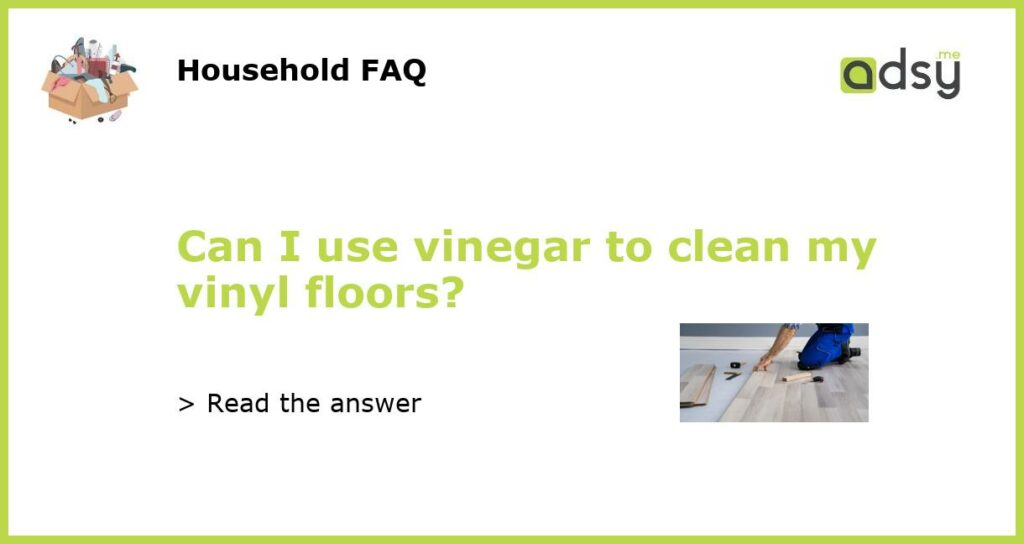Why Vinegar is a Great Cleaning Agent
For many centuries, vinegar has been used as a natural cleaning agent due to its acidic properties. It is an effective and eco-friendly option for cleaning various surfaces around the house, including vinyl floors. Vinegar, especially white distilled vinegar, is known for its ability to remove dirt, grime, and stains without leaving any harmful residue behind. However, before using vinegar on your vinyl floors, it is essential to understand its pros and cons.
The Benefits of Using Vinegar on Vinyl Floors
Vinegar has several advantages when used as a cleaning agent on vinyl floors. Firstly, it is a natural disinfectant and can kill germs and bacteria. This is particularly beneficial for households with pets or children who spend a lot of time on the floor. Secondly, vinegar is affordable and readily available. It is much cheaper than commercial cleaning products, making it a cost-effective option for homeowners. Thirdly, vinegar does not contain any harsh chemicals, making it safe for both the environment and your health.
Potential Risks and Precautions
While vinegar is generally safe to use on vinyl floors, there are a few precautions to keep in mind. First, it is essential to dilute vinegar properly before using it on vinyl. The acidic nature of vinegar can damage the surface of the vinyl if used in its undiluted form. Therefore, always mix vinegar with water in a ratio of 1:1 or 1:2, depending on the level of dirt and grime.
Secondly, avoid using vinegar on waxed vinyl floors. The acidity of vinegar can strip away the wax layer, leaving the vinyl vulnerable to scratches and stains. If you are unsure whether your vinyl floor is waxed or not, it is recommended to test a small hidden area with the vinegar solution before cleaning the entire floor.
Lastly, do not use vinegar on marble or stone-effect vinyl floors. The acid in vinegar can dull or etch the surface of these types of floors. Instead, consult the manufacturer’s instructions or a professional cleaner for suitable cleaning solutions for marble or stone-effect vinyl floors.
How to Clean Vinyl Floors with Vinegar
To clean your vinyl floors with vinegar, follow these simple steps:
- Prepare a mixture of equal parts vinegar and water in a bucket. Alternatively, you can use a 1:2 vinegar-to-water ratio for tougher stains.
- Dip a mop or cloth into the vinegar solution and wring it out to remove excess liquid.
- Gently mop the vinyl floor, making sure to cover all areas evenly. Avoid saturating the floor with too much liquid.
- For stubborn stains or heavily soiled areas, let the vinegar solution sit on the floor for a few minutes before scrubbing gently with a soft-bristle brush or sponge.
- Once the floor is clean, rinse with plain water to remove any residue. Dry the floor thoroughly with a mop or cloth.
Alternative Cleaning Solutions for Vinyl Floors
If you prefer not to use vinegar or want to try other cleaning solutions, there are several alternatives to consider:
- Commercial vinyl floor cleaners: Look for cleaners specifically designed for vinyl floors. These products are formulated to effectively clean and protect the vinyl surface without causing damage.
- Mild dish soap and warm water: Mix a few drops of mild dish soap with warm water. Use a mop or cloth to clean the vinyl floors, then rinse and dry thoroughly.
- Baking soda paste: Create a paste using baking soda and water. Apply the paste to stains or grime, scrub gently, and rinse with water.

